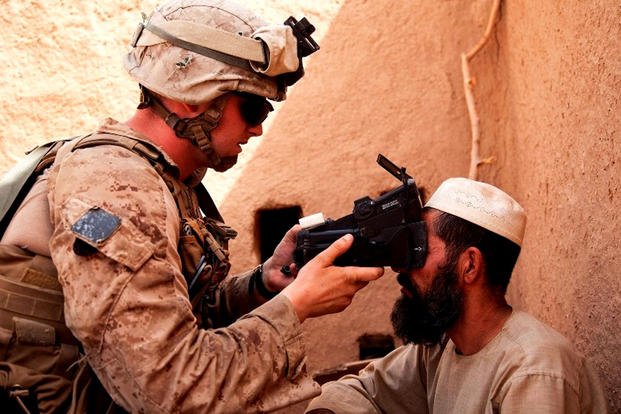The Marine Corps Rapid Capabilities Office (MCRCO) wants the defense industry's help to develop biometric sensor technology to monitor the mental and physical health of Marines on the battlefield.
The request for information (RFI) is one of four focus areas the office has identified for fiscal 2020, according to an Oct. 31 solicitation posted on the federal contracting website FedBizOps.
The MCRCO "is seeking industry input to identify potential sources for a Biometric Sensor capable of aiding in warfighting functions through physiological metrics such as mental and physical fatigue, hydration levels, heart rate, temperature, nutrition level, impact forces, etc.," the solicitation states.
The Marine Corps has used biometric sensors to collect data from persons of interest, including fingerprints, iris and facial images. Late last year, the Corps completed fielding a handheld biometric sensor to help deployed Marines track the movement of suspicious individuals they encounter on the battlefield, according to a December 2017 Marine Corps press release.
For the new biometrics focus area, the MCRCO plans to conduct a limited Rapid Capability Assessment using sensor prototypes to inform concepts of employment and capability requirements, according to the solicitation.
The sensor prototypes should be:
- able to be worn with or integrated into individual equipment loads.
- able to accept/integrate with government-owned command-and-control systems and architectures and be managed from a common tablet.
- capable of collecting and exporting real-time or near real-time data.
Interested companies have until Nov. 26 to respond to the RFI.
The MCRCO has also identified focus areas to develop capabilities in power foraging, enhancing personal equipment and power management.
As with the biometric sensor focus area, the MCRCO plans to conduct limited assessments of prototypes to guide how the technology could be used in the future, as well as inform future requirements, the solicitation states.
-- Matthew Cox can be reached at matthew.cox@military.com.













